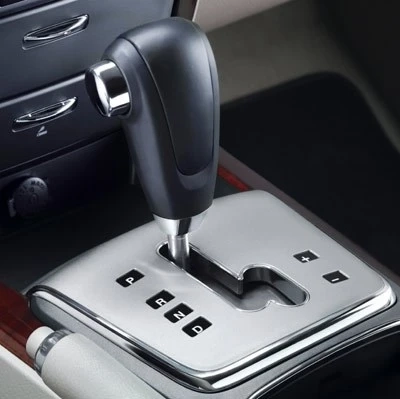If the idea of driving makes you nervous, you’re not alone. Plenty of people feel overwhelmed when learning to drive, especially with everything going on at once—steering, checking mirrors, switching gears, and keeping an eye on traffic. That’s where automatic driving lessons in Manchester come in. Learning in an automatic car takes away one of the biggest challenges: gear changes. You can focus more on the road and less on the clutch, which means more time building confidence and less time stalling at junctions.
Driving should feel like freedom—not frustration. So if you’re just starting out, or if manual lessons have left you feeling stuck, it might be time to look at an option that fits you better.
Why So Many People Are Choosing Automatic
More and more learners in the UK are turning to automatic cars, and not just because they’re easier to drive. With electric cars becoming more popular—and all of them being automatic—it’s clear the future is moving in this direction.
But even now, there’s real value in keeping things simple. You don’t have to think about clutch control or changing gears in traffic. That means you’re less stressed and more focused on the road ahead. And for many learners, that makes all the difference.
Who Benefits Most from Automatic Driving Lessons?
Automatic lessons can work for anyone, but they’re especially helpful if:
- You’ve tried manual and struggled with gear changes
- You experience anxiety behind the wheel
- You need to learn quickly
- You want a smoother learning curve
People with learning differences, physical challenges, or those short on time often find automatic lessons are simply more accessible. And that’s a good thing—driving should be for everyone.
First Lesson Expectations: Keep It Simple
Your first automatic lesson is all about getting comfortable. There’s no pressure to drive on busy roads right away. You’ll likely begin in a quiet spot where you can get a feel for the car without worrying about other drivers.
Expect to go over the basics: how to start the engine, use the pedals, check mirrors, and steer smoothly. You might even get to drive short distances. What you won’t have to do? Struggle with a biting point or worry about stalling.
Automatic cars let you focus more on the flow of driving and less on the mechanics. That helps build trust in your own abilities from the very beginning.
Overcoming Fear and Building Confidence
Confidence doesn’t show up on day one. It grows with each turn, each roundabout, and each time you realise you handled something without needing help. If you’re someone who gets anxious easily, learning in an automatic can give you more small wins early on.
You’ll still be challenged, of course—driving means thinking ahead, reacting quickly, and staying aware. But you won’t have the added stress of constant gear changes interrupting your thought process.
Your instructor plays a big role here, too. A patient voice, a calm explanation, and the reassurance that it’s okay to get it wrong make a huge difference.
Real Progress, One Lesson at a Time
Every lesson moves you forward—even the ones that don’t feel perfect. Some days you’ll leave the car feeling great. Other days, you might wonder if you’re cut out for driving at all.
But learning anything new has ups and downs. That’s part of the process. The key is to stick with it, to show up for the next lesson, and to keep practicing until things start to click. They always do.
Automatic driving lessons tend to show faster progress for many learners, simply because there's less technical juggling. You get more time to understand the road and how to respond to it.
What Makes a Good Driving School Experience?
It’s not just about the car—it’s about how you’re taught. A good driving school listens to your needs. It adapts the pace to suit you and doesn’t treat lessons like a one-size-fits-all package.
Look for instructors who are calm, understanding, and clear in their feedback. Learning is easier when you’re not worried about being judged. Instead, you should feel like you’re learning alongside someone who genuinely wants to see you succeed.
Test Preparation That Actually Works
Once you’ve built up your driving hours and gained real experience on different road types, your instructor will begin preparing you for the test. In an automatic, the technical side becomes easier to manage, so you can focus more on observation, decision-making, and handling traffic calmly.
You’ll do practice routes, mock tests, and go over any weak spots. The goal isn’t just to pass—it’s to make sure you're ready to drive alone safely.
When the test day comes, you’ll know what to expect. You’ll have already handled similar situations. That’s how preparation becomes confidence.
Automatic vs. Manual: Final Thoughts
Some people worry that learning in an automatic is limiting. It’s true—if you pass in an automatic, your licence won’t allow you to drive a manual car. But ask yourself: do you really need to?
Most modern cars are automatic. Many companies offer automatic vehicles as standard. And with electric vehicles on the rise, the world is shifting in that direction anyway.
So unless you have a specific reason to drive manual, automatic might not be a compromise at all. It could just be a smarter, smoother path to your licence.
When You're Ready, the Road is Waiting
Everyone deserves to feel safe and confident behind the wheel. If manual lessons haven’t worked for you, or if you want a simpler way to learn, automatic might be exactly what you need.
There’s no shame in choosing the easier route—especially when that route helps you learn better and faster. What matters most is that you become a safe, alert, and responsible driver. How you get there is up to you.
When you’re ready to take that next step, know that there are welcoming, experienced instructors ready to help with automatic driving lessons Manchester wide.


